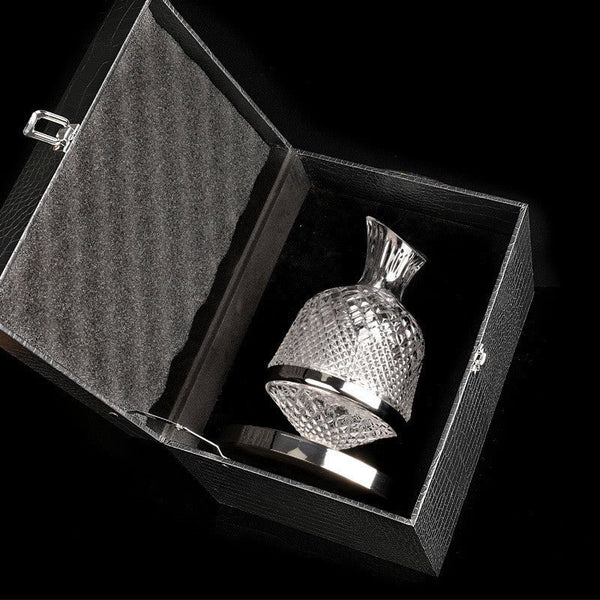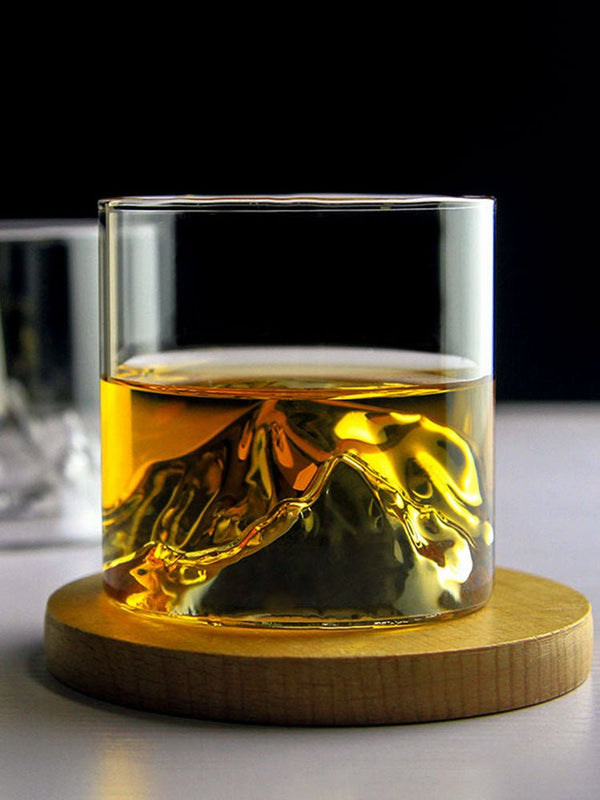Does Whisky expire?
Products on sale
-
 Turbocharger Whiskey Decanter
Turbocharger Whiskey Decanter
- Regular price
- $42.99
- Sale price
- $42.99
- Regular price
-
$56.99 - Unit price
- per
Sold out -
 Crystal-cut Rotating Decanter
Crystal-cut Rotating Decanter
- Regular price
- from $119.81
- Sale price
- from $119.81
- Regular price
-
$160.00 - Unit price
- per
Sold out -
 Japanese Whisky Glass
Japanese Whisky Glass
- Regular price
- from $24.99
- Sale price
- from $24.99
- Regular price
-
- Unit price
- per
Sold out
Does Whisky ever go bad? Unveiling its eternal shelf life
Whisky has long been cherished for its complex flavors and rich history. It's not just a beverage, but an experience deeply rooted in tradition.
One common query among consumers is about the expiration and longevity of whisky.
This article explores whether whisky expires and the duration of its shelf life.
The nature of whisky
Whisky is distilled from fermented grain mash, including barley, corn, rye, and wheat.
Its unique flavors are imparted through distillation and aging in wooden casks. Unlike wine, the aging of whisky stops once it's bottled.
This means it retains its taste and strength for years under proper conditions.
Does whisky expire?
Whisky does not expire in the traditional sense; it wont spoil or become unsafe to drink.
Its high alcohol content acts as a preservative. However, once a bottle is opened, the whisky may change in taste and aroma over time due to exposure to air.
Shelf life of unopened whisky
Properly stored, unopened whisky can last indefinitely. The key to preserving its quality is correct storage.
It should be kept upright to avoid contact between the alcohol and the cork, which can deteriorate the cork over time.
Whisky should also be stored away from direct sunlight and at a stable temperature to prevent the liquid inside from expanding and contracting.
Shelf life of opened whisky
Once a whisky bottle is opened, the quality can start to change. Exposure to air leads to oxidation, which might mellow the flavor and aroma.
While not necessarily bad, this can alter the character of the whisky. Ideally, opened whisky should be consumed within 1 to 2 years.
As the level in the bottle drops, the oxidation process accelerates.
If you're not planning to finish an opened bottle soon, consider transferring the whisky to a smaller bottle to reduce air exposure.
Signs of degradation
Whisky doesn't spoil, but it can degrade. Look out for these signs:
- Change in color: Significant lightening or cloudiness can indicate poor storage conditions.
- Change in smell: An off smell or a reduction in aroma complexity can suggest degradation.
- Change in taste: A flat or dull taste compared to initial opening may indicate it's past its prime.
Tips for storing whisky
To maximize the shelf life of your whisky, follow these storage tips:
- Keep it upright: Storing whisky on its side can cause the cork to deteriorate.
- Stable temperature: Keep your whisky in a cool, consistent environment.
- Avoid sunlight: Sunlight can degrade the quality of whisky over time.
- Proper sealing: Ensure the cap or cork is tightly sealed after each use to minimize air exposure.
Whisky does not expire, but its quality can degrade after opening.
Proper storage and handling are crucial to preserving the flavors and aromas of whisky.
Understanding how to care for your whisky ensures that each sip remains as enjoyable as possible.



